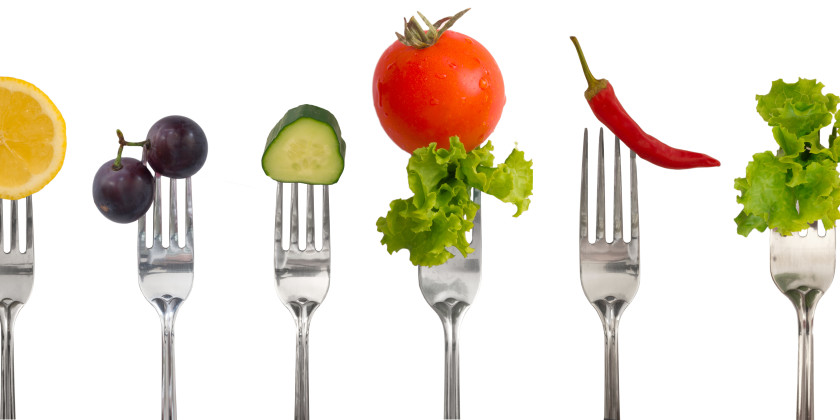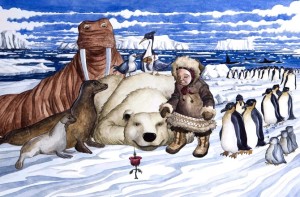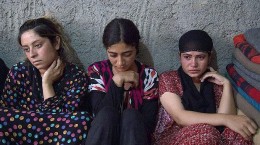There is no doubt that eating less meat and dairy products from the over-industrialized farms that plague our world today and switching to a diet rich in plant-based, unprocessed foods is definitely a step towards a healthier lifestyle change. According to nutritionist Colin T. Campbell’s findings illustrated in his book, “The China Study,” people who avoid all animal products and replace that with nutritious fruits and veggies are able to escape, reduce, or reverse the development of numerous diseases- such as coronary heart disease, diabetes, breast cancer, prostate cancer, and bowel cancer. Not only is it better for the animals and our health, it is also more sustainable and environmentally friendly due to the amount of water usage we would be reducing that would otherwise go to the over-bred species of animals we give it to simply for our palatal pleasure.
I have witnessed many arguments between meat-eaters and vegans where the vegan debunks any myths towards meat being the “best” source of protein, which it most definitely is not. However, there are many arguments against the blanket statement that all humans should go vegan. Speaking from an environmental point of view, there are many instances where it may seem more appropriate to eat meat than to eat veggies depending on geographical circumstances. Rob Greenfield, an environmental and social activist, has brought up an argument that left an impact on my view of veganism; vegan diets, like many diets, vary. For example, some vegan diets may include food that is shipped halfway across the globe and is covered in packaging that can be resource-intensive. He even states that raising cropland to grow plant-based food can kill or displace animal populations. Stemming from this sort of vegan diet, he then argues in defense of meat-eaters. In his article, “An Argument Against Veganism… From a Vegan,” he argues:
“-There’s the exploding wild boar population in Texas that is causing serious environmental problems. They are one of the most destructive invasive species in the US today displacing native species populations, devouring crops, and tearing up the land they roam. I think that hunting and eating these boars has a much smaller environmental impact (and likely even a positive impact) than just about any vegan food you can buy at the supermarket.
-Hunting deer in your own neck of the woods, like my friends in Wisconsin do, can also be far less destructive than being dependent on large-scale production of any food. These deer live wild, eating grasses their whole life, and no unsustainable resources must be used in their existence. Plus, by having to hunt their food themselves, these hunters can be much more connected to their food than the urban vegan.
-The Inuit people live primarily on animals that they hunt and trap locally. Imagine if they instead had all their food shipped in from warmer lands where it could be grown. That would be so much more detrimental than living off their land.”
When it comes to these circumstances, one is left questioning whether personal survival is more important than the animal’s survival especially if the human has many other foodoptions. Not only that, but does the wild boar pose more of an environmental threat thanhumans have for the past century? As for the overpopulation of deer, humans have actually encouraged that in order to benefit deer hunters. Perhaps action towards the root of the problem would be more helpful than justifying the killing that is “needed” when it is only “needed” to justify the killing.
Lastly, when thinking deeply about the Inuit people, one must take into account that there’s a misconception that the Inuit are healthy in spite of having meat-heavy diets. In fact, their mortality rates are 10 years lower than the rest of Canada in 1991 (and has fallen further behind), and they have higher cancer rates. This leaves us to question whether killing animals and indirectly killing themselves (through illnesses caused by such a meat-dense diet) is a better option for the Inuit than transporting vegetables in a way that is not environmentally friendly. However, when trying to study the economy of the Inuit, it is clear that many attempts to make them have a wage-economy have failed and that most of their economy generates from trading animal products.
According to the Canadian encyclopedia, “Traditionally, the Inuit economy revolved around the changing seasons and the animals that could be successfully hunted during these periods. The Inuit world was so closely linked to its subsistence economy that many of the calendar months were named after game prey.” That being said, it is apparent that they need to kill animals in order to survive and due to their economy or lack of our Western American-style economy, they might not be considered enough of a demand to supply vegetables for. Should they move to land fit for vegetation? Is that even our call to make seeing as though many people would agree that forcing the migration of native peoples around the world has been one of the cruelest and biggest mistakes that imperialism has enforced?
Veganism for a consumer-based economy definitely reaps more pros than cons, but other than a spiritual reason, this diet may not be well suited for people around the world. Where do we draw the line between sustainability and morality when it comes to having compassion for the animals we view as food?
By, Stephanie Londono
@stephorlanda





